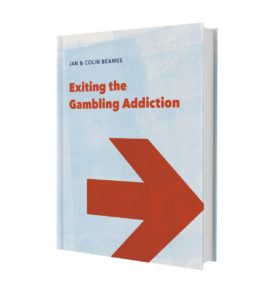By Jan Beames –
Sports gambling is about to expand big time in the US with the relaxation of legislation that curtailed it. Like a number of other Western countries, it will most likely become part of mainstream culture. Nevertheless, for those who are problem gamblers, the practice is hard to treat and causes considerable harm that goes well beyond the person placing bets to reach families, friends and local communities.
Much has changed in the last few decades, as opportunities to gamble have expanded with the emergence of sophisticated new technologies, including:
- Highly engaging electronic gaming machines
- Access to 24-hour gambling through the internet
- Mobile phone technology
- Interactive television platforms
In particular, the availability of smartphones means that it’s now possible to conceal a secret gambling habit for years before financial and emotional crises reach a breaking point.
In America, it is estimated that 2 percent of the population are problem gamblers and for nearly 20 million the habit seriously interferes with their professional and social lives. In particular, betting has become normalized among young men who are regular participants and viewers of sports, often facilitated by widespread wagering marketing, offers of promotions and other inducements.
Gambling is a difficult addiction to break, being referred to as “an addiction without a drug.” Commonalities with substance abuse disorders include the presence of urges and cravings, tolerance symptoms (the need for more and stronger incentives), withdrawal symptoms, compulsivity and impulsivity. Diminished self-control is a core feature of both substance use disorders and behavioral addictions. Of course, as with other addictions, the hallmark sign of a gambling addiction is that the gambler feels as though they cannot stop.
The scientific understanding of gambling behaviors has grown and problem gambling has become acknowledged as both a public health and mental health issue. It is now formally classified in The Diagnostic and Statistical Manual of Mental Disorders as a disorder of impulse control.
For some, gambling is a way to act on their impulse, while for others, gambling may be a way to forget about impulses or make them feel less intense. The motivations to gamble can be broadly classified under one of the following emotional needs:
- The desire for relief, avoidance or escape from stress or negative emotional states including sadness, loneliness, emptiness, past traumas even stretching back to childhood
- The desire for excitement and arousal (i.e., adrenalin rush)
- The desire for belonging, identity and relationship.
There always is a story behind the gambler and how the practice preys on the vulnerable ones who are susceptible to gambling, due perhaps to earlier experiences and traumas.
Gambling is not only associated with financial loss. Its consequences also include depression, self-harm and anxiety. It can hurt individuals, families, workplaces and communities. And its impact is far-reaching. In fact, for every person with a gambling problem, it is estimated that 5 to 10 other people are adversely affected by it.
Research indicates that problem gamblers are around six times more likely to be divorced, four times more likely to have problems with alcohol, and four times more likely to smoke daily than non-problem gamblers. Children with parents who are problem gamblers also are up to 10 times more likely to become problem gamblers themselves than children with parents who don’t gamble.
Suicide also is a very real and all too common consequence of problem gambling. No other addiction has as high a suicide rate as gambling. It is estimated that one in five gambling addicts attempt to kill themselves, which is about twice the rate of other addictions.
Problem gambling also extends to players involved in elite sports (particularly team sports). They are, in fact, 4 to 8 times more likely to become addicted than those in the general population, according to research out of Britain. The reasons sportsmen become addicted include their access to large amounts of money, the need to belong and relief from poorer performances or injuries.
Gambling, of course, doesn’t just impact their finances. It can hurt their playing performance and as it does with those other gambling addicts, undermine their relationships, emotional health or self-image.
The problem facing addicts isn’t just its devastating impact. Gambling addiction treatment is difficult, with current efforts generating only moderate success. It is believed that therapeutic approaches need to deal more with the underlying emotional urges, which are considered to be the source of the addiction, than the act of gambling itself. Right now, those are long odds to overcome.

About Jan Beames
Jan Beames is a highly regarded counselor, coach and group facilitator based in Melbourne Australia. Her experience with gamblers extends from elite sportsmen to executives, businesspeople and others. Together with her husband, Colin Beames, who is an organizational psychologist, they have written a book entitled Exiting the Gambling Addiction.
For more information, visit www.janbeames.com.au











